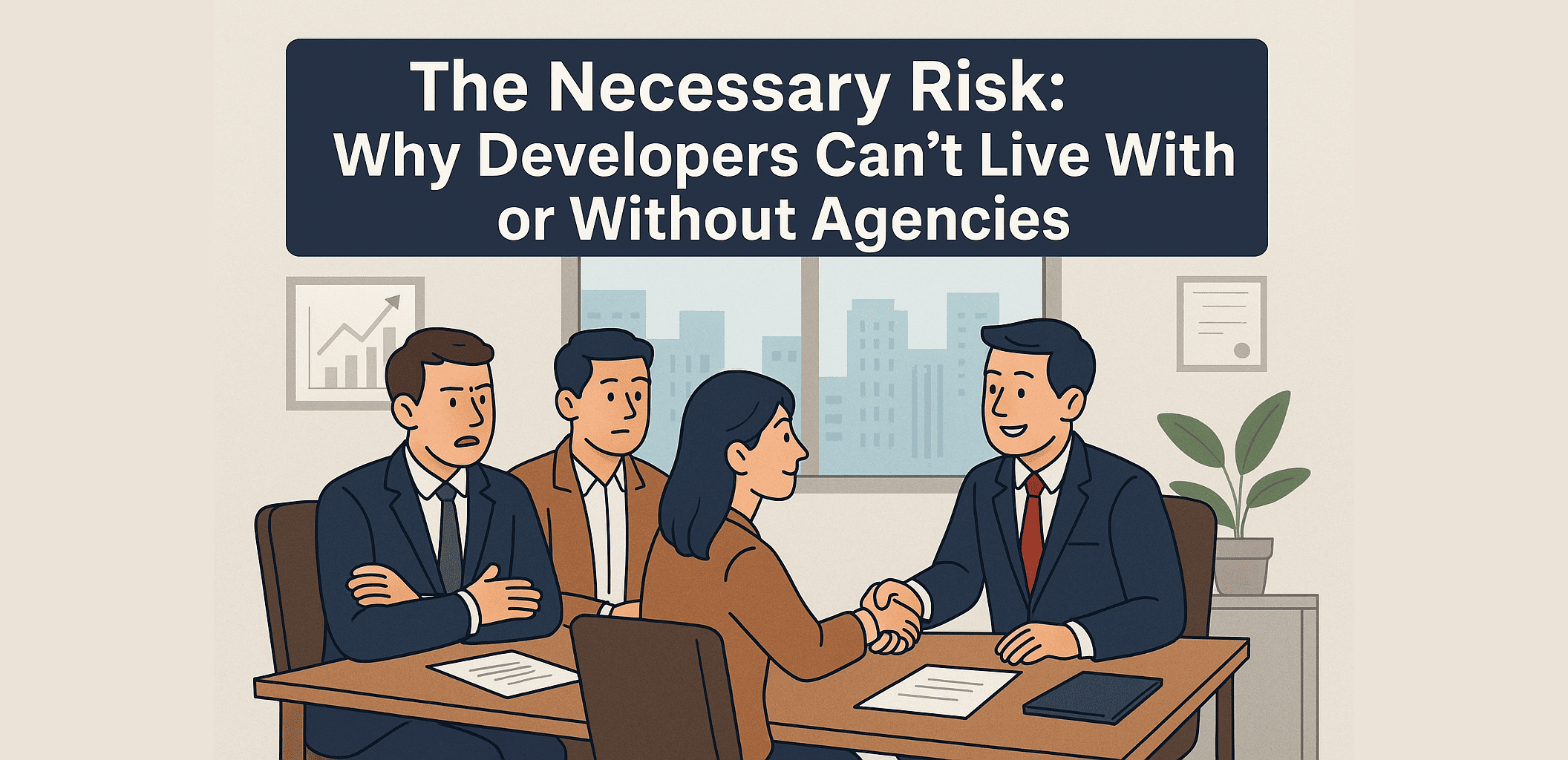The Necessary Risk: Why Developers Can't Live With or Without Agencies

In Malaysia’s property market, developers and agencies should be natural allies. Developers need agents to move units quickly; agents need developers to supply projects and commissions. Yet the relationship is often fraught with tension.
Developers complain about fake bookings, inconsistent branding, and agents undermining each other with commission rebates. Agents complain about slow payouts, arbitrary rules, and lack of trust. The result is a fragile partnership where both sides feel cheated.
So why exactly don’t developers trust agencies—and why do they still appoint them anyway?
The Root of Distrust
-
Fake Bookings
Some agencies encourage agents to place dummy bookings just to “block” units or hit quotas. From the developer’s perspective, this is disastrous. It creates the illusion of demand, skews sales projections, and often leads to embarrassing cancellations later.
-
The Rebate Culture
Commission rebates to buyers may win deals in the short term, but they undermine the developer’s pricing strategy. One buyer hears about another getting a rebate and suddenly the entire project looks negotiable. The brand is diluted, margins shrink, and developers are left scrambling to enforce consistency.
-
Inconsistent Branding
Developers spend millions on showrooms, brochures, and branding campaigns. But when agencies blast listings on WhatsApp or property portals with mismatched photos, inaccurate details, or unapproved messaging, the branding falls apart. To developers, it feels like losing control of their own product.
Why Developers Still Appoint Agencies
If trust is so low, why do developers keep appointing agents? The answer is simple: they can’t afford not to.
-
Limited In-House Manpower:
A developer’s internal sales team might number a dozen. An agency can mobilize hundreds of negotiators instantly.
-
Wider Market Reach:
Agencies hold the grassroots networks—WhatsApp groups, co-broking circles, and personal buyer databases—that developers can’t replicate.
-
Cost Efficiency:
Agencies work on commission only. Developers don’t bear the risk of salaries, only pay when a unit is sold.
-
Faster Absorption Rates:
Shareholders and banks judge projects by how quickly units move. Agencies provide the speed.
-
Access to Buyers:
Many serious buyers trust their personal agents more than a showroom. Developers rely on these “gatekeepers” to close deals.
This is the paradox: developers see agencies as necessary but risky partners—indispensable for reach and speed, yet a constant threat to brand control and pricing integrity.
How to Fix It
For Developers
-
Standardize Inventory Control:
Use a centralized system where every agent sees the same verified stock, reducing double-bookings and fake reservations.
-
Enforce Clear Rebate Policies:
Either ban them outright or cap them transparently to avoid undercutting your own pricing.
-
Protect the Brand:
Provide ready-made digital kits (photos, copy, videos) so agents don’t have to improvise.
For Agencies
-
Prioritize Long-Term Trust:
A quick rebate may close one deal, but it can destroy your reputation with developers. Protect their brand like it’s your own.
-
Educate Agents:
Train them not just to sell, but to align with developer strategy. Misaligned messaging kills trust.
-
Advocate for Professional Payouts:
Demonstrate your agency’s reliability to negotiate for faster, milestone-based commission structures. This reduces financial friction and builds trust.
The Bigger Picture
Ultimately, developers don’t distrust agencies because of one bad booking or one rogue rebate. They distrust the system—a commission-driven model that incentivizes short-term wins over long-term partnerships.
The fix lies in building transparency, discipline, and professionalism into the agency–developer relationship. When both sides know the numbers are real, the branding is consistent, and the rules are respected, trust becomes possible again.
The Bottom Line
Agencies that want to survive can’t just sell units. They must prove they can be trusted stewards of a developer’s brand and strategy.
Because in the long run, the developer–agency relationship isn’t just about sales—it’s about credibility. And without credibility, nobody wins.
👉 What do you think—should developers tighten control further, or can agencies rise to the standard of true partners?











































































































